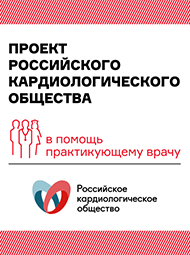Obesity, oral contraceptive use linked to rare stroke risk
Women with obesity using oral contraceptives are at greater risk for cerebral venous thrombosis than normal-weight women not using oral contraceptives, according to study results.
“However, although the relative risks are increased substantially, the absolute risks of [cerebral venous thrombosis] are still small,” the researchers wrote. “Moreover, withholding oral contraceptives may lead to an increase in unintended pregnancies and, thus, the number of pregnancy-related thrombosis cases.”
Jonathan M. Coutinho, MD, PhD, of the department of neurology at Academic Medical Center in Amsterdam, and colleagues conducted a case-control study of 186 consecutive adult patients with cerebral venous thrombosis admitted from 2006 to 2013 to the Academic Medical Center in Amsterdam or Inselspital University Hospital in Bern, Switzerland. Researchers sought to determine whether obesity is associated with adult cerebral venous thrombosis. Obesity was categorized as BMI of at least 30 kg/m2, overweight as BMI of 25 kg/m2 to 29.99 kg/m2 and normal weight as BMI less than 25 kg/m2.
Compared with controls (n = 6,134), cases were younger, more often women and oral contraceptives users, and had a history of cancer and higher BMI (P = .01).
Cerebral venous thrombosis risk was increased in patients with obesity after adjustment for confounding variables compared with normal-weight participants (BMI 30 kg/m2, adjusted OR = 2.63; 95% CI, 1.53-4.54). Among the entire cohort, no link was found between overweight and cerebral venous thrombosis.
In men, the researchers found no statistically significant link between obesity and risk for cerebral venous thrombosis. However, in women, the risk for cerebral venous thrombosis was linked to overweight (adjusted OR = 1.71; 95% CI, 1.01-2.91) and obesity (adjusted OR = 3.5; 95% CI, 2-6.14).
After further stratification, no link was found between obesity and cerebral venous thrombosis in women who did not use oral contraceptives; however, a strong risk was observed among women with obesity using oral contraceptives. Women with obesity who used oral contraceptives had a 29-fold increased risk for cerebral venous thrombosis compared with normal-weight women who did not use oral contraceptives (adjusted OR = 29.26; 95% CI, 13.47-63.6). An increased risk was also found among women with overweight taking oral contraceptives (adjusted OR = 11.87; 95% CI, 5.94-23.74).
“Our results suggest that obesity is associated with a substantially increased risk of [cerebral venous thrombosis] in women who use oral contraceptives,” the researchers wrote. “This increased risk should be taken into consideration when prescribing oral contraceptives to obese women.”
In an accompanying editorial, Chirantan Banerjee, MD, MPH, assistant professor of neurology in the department of neurology at the Medical University of South Carolina in Charleston, wrote that although the study revealed a risk, the researchers acknowledged that the absolute risk remains low and should not affect oral contraceptive use.
“Use of [oral contraceptives] has also been associated with increased risk of arterial ischemic stroke in obese women,” he wrote. “Better counseling and education of obese women informing them of the increased risk would be prudent, as would be consideration of alternate nonhormonal [oral contraceptive] options.” – by Amber Cox
Source: www.healio.com






